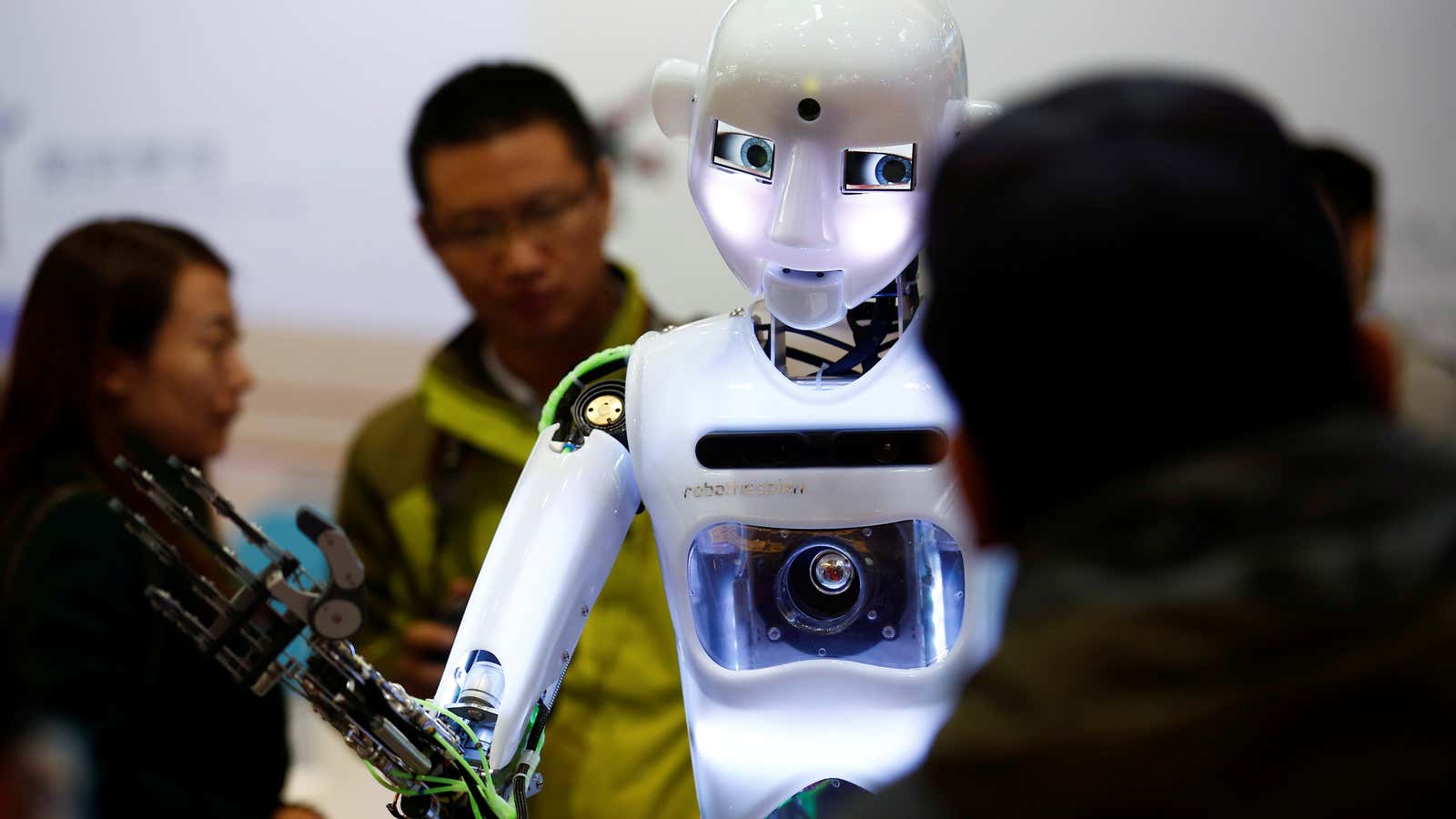Developing robots that can serve as better nurses, teachers, or sales representatives means developing robots that can support humans. One scenario in which humans are in obvious need of emotional support is when they’re trying to date each other.
In order to investigate whether responsiveness—an important quality in creating emotional bonds between humans—is also important for humans relating to robots, a group of researchers from Northwestern University, Cornell University, the University of Rochester, and the Interdisciplinary Center in Herzliya, Israel, decided to simulate the “stressful interaction” of online dating. The group, whose work was published in the journal Computers in Human Behavior in May, wanted to see if responsive robots could help humans see robot support ”as a safe haven in times of need and as a secure base for becoming more confident in a subsequent stressful interaction.”
Here’s how the experiment worked: Led to believe they were testing a speech-recognition algorithm designed for dating sites, participants were asked to tell a robot named Travis about a recent dating experience that made them feel attractive and desirable. An 11-inch faceless robot sitting on top of a desk, Travis was actually being remotely controlled by researches (known as the “Wizard of Oz” setup) and would respond to the dating story with either a “cold shoulder” or a gentle swaying and nodding, coupled with statements like ”Wow, that’s really great!” or ”What a pleasant experience!”
After their interaction with Travis, participants were asked to introduce themselves, on camera, to potential romantic partners, by sharing hobbies, positive traits, and future career plans. Afterward, researchers asked them to rate themselves on how suitable they felt as a romantic partner.
Overall, participants who had talked to the responsive version of Travis rated themselves as more suitable for dates than those who got Travis’ cold shoulder.
Of course, the experiment wasn’t about turning robots into first-date support systems. Rather, it explored whether robots that can respond to nuances in communication the way Travis did, but without the human help, could be suited for jobs that involve social skills.
“In these roles, robots may be required to monitor their human interlocutors and engage in supportive interactions,” the researchers wrote. “For example, a robot serving in an elderly care facility might provide support by listening to the experiences of elderly people.”
This proof-of-concept study suggested responsiveness could make robots better at social tasks, such as checking in on hospital patients, sitting at a front desk, greeting shoppers at a store, or answering customer service requests. In other words, robots make for effective wingmen—but they’re more likely to impact your next job than your next date.
